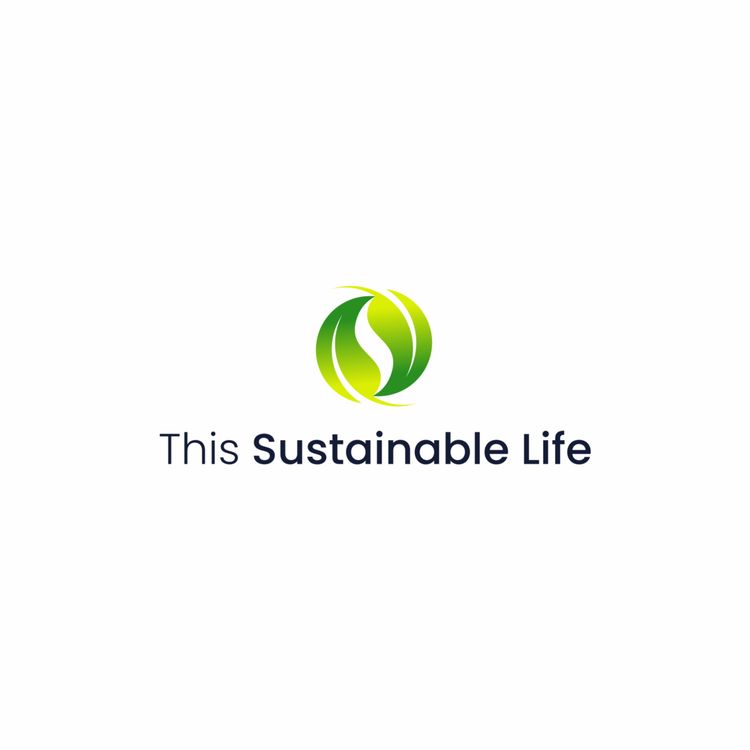Share

This Sustainable Life
475: We Can Dance Around Environmental Problems All We Want. We Eventually Reach Overpopulation and Overconsumption
Have you ever tasted an heirloom tomato so delicious it was almost a religious experience? I used to think people who complained about supermarket tomatoes sounded full of themselves. How different can they taste?
Then I tasted heirloom tomatoes with so much flavor, I couldn’t believe my taste buds. The next time I ate a mainstream tomato it felt like eating wet cotton.
Do you know what they used to call heirloom tomatoes?
They used to call heirloom tomatoes tomatoes. Our post-industrial values of growth, efficiency, externalizing costs, comfort, convenience, and extraction turned something divine into something available year-round at an affordable price but a fall from grace to say the least. In the way that my rare sips of scotch today give me more appreciation of spirits than the larger quantities I drank of beer in college despite drinking less alcohol, my net appreciation of tomatoes is greater now, despite spending less overall on them and only eating them in season.
I mention this contrast for context.
Every day we read headlines about environmental problems. Deforestation, sea level rise, plastic in our bloodstreams, forever chemicals crossing the placenta, lead lowering our IQs.
We can dance around environmental problems all we want. We eventually reach overpopulation and overconsumption.
Everyone thinks reducing population means killing people and reducing consumption means reverting to the stone age. More like switching from binge drinking cheap beer or eating industrial tomatoes to appreciating scotch or experiencing preindustrial tomatoes.
Mainstream views, and, no offense but likely yours, are wrong on alternatives to both. They associate reducing overpopulation with the One Child Policy and eugenics, and the authoritarian, inhumane, and inhuman practices they led to including forced sterilization, forced abortions, and more. They associate reducing overconsumption with deprivation and sacrifice. We associate buying things with happiness and quality of life, so less must mean unhappiness and lower quality of life. If we don’t grow the GDP, people will lose jobs, we won’t be able to maintain our infrastructure, hospitals will close, mothers will die in childbirth, and 35 will be old age. Do you want to return to the stone age, Josh? Is that what you want?
But the alternative to overpopulation is lowering the birth rate, which many nations have done through purely voluntary, non-coercive means, mainly education, access to contraception, and the freedom to choose their family size themselves—the opposite of the One Child Policy or eugenics. These policies throughout the world brought health, longevity, stability, prosperity though voluntary means—the opposite of mainstream expectations. Frankly I thought that way too and couldn't talk about it until I learned of it happening all over the world. Until then, I thought if the cure is worse than the disease, I’ll take the disease. The last place I want the government is in the bedroom. As it turns out, globally, the government is in the bedroom, promoting larger families based on disproved economic myths, trying to coerce people into larger families. Over hundreds of thousands of years, humans have kept our population at replacement. The past few centuries since stumbling onto fossil fuels are the aberration that we’ve born into, erroneously seeing as normal. For the two to three hundred thousand years of human existence before agriculture, our ancestors lived longer, healthier lives than the past ten thousand years until living memory. And now we’re making ourselves sicker and dying earlier than our parents.
People associate consumption with quality of life. More stuff can improve life if you’re on the cusp. People you know imagine themselves cousins with such people eking out a living, as if they are like cousins or siblings. On the contrary, you and people you know are likely benefiting from their suffering and contributing to it. They are if they're using single-use plastic, flying, heating their homes too much in winter and cooling them too much in the summer. The alternative is joy etc. You and I aren’t on the margin. We have so much stuff, advertisers spend billions to make as want more because it doesn’t improve our lives.
Since Earth's carrying capacity without fossil fuels is, as best I can tell, about two billion, leveling off our population doesn’t move us away from the population collapsing. The solution is to copy what many people around the world have done—to choose to reduce birth rate globally to well below replacement and to consume less. If you heard classism, nationalism, sexism, or racism in anything I’ve said, you stuck it in yourself. Such preconceived notions aren’t helping anyone.
Reducing consumption and number of children in rich nations are easier physically, but people here are so entitled and spoiled that in our minds we think it's harder. We’ve lost the sense that technology has made us more dependent on it and less resilient. So we need to restore our culture—that is, role models, beliefs, images, stories—to historical ones including stewardship and Do Unto Others As You Would Have Them Do Unto You. Nobody wants to be displaced from their land or have their air, land, and water poisoned.
I've reduced my consumption and waste from average American by over ninety percent, all improving my quality life. I have no kids, though I could still have one and be below replacement level. I doubt I'll have one because I couldn't look my child in the eye knowing what world is in store for him or her. Yes, if you’re a parent, I’m improving your kids’ future, possibly more than you. Yeah, I said it.
If you're like most people, facts, figures, logic, and instruction, however simple and sensical, won't influence your behavior. You'll change when about five people in your life do. So here are my changes:
- I haven’t flown since 2016 by choice
- I take two years to fill a load of trash
- I’ve picked up litter daily since 2017
- My monthly electric charges have been below $1.95 this year
- I buy mostly local produce year-round, including winter. The major exception being dried beans, which I buy from bulk and are my main staple.
- Last ate meat in 1990, vegan a big chunk of that time
- I lead global leaders to change so I’m not acting alone, but working to change systems and culture
Now you know one person who lived like the average American, thought individual action wouldn’t make a difference, but voluntarily chose to live more simply and loved the results so much I’ll never return and only wish I’d acted sooner. Like you, I felt I needed to fly to make a living. My family is scattered around the world. Nothing about the change for me was any easier than for you, no matter how unique you consider yourself. So knowing my change, you're about twenty percent of the way to changing. Look for others and you'll change sooner. The number one predictor of someone installing solar on their homes is how many neighbors did already. Same with habits in eating, drinking, smoking, voting, and many other areas.
What about efficiency and decoupling? Aren't we reducing consumption and waste while increasing GDP? This is a quantitative case. Before doing the numbers, you could imagine it going either way. After doing the numbers, decoupling is a myth. Actually, more a scam, like recycling plastic and carbon offsets. We want to believe so we can cling to our old ways, but once you see the effects are the oppositive of your fantasies, it becomes overwhelmingly clear. If you make a polluting system more efficient, you pollute more efficiently.
We have been sold scam after scam by polluters. I doubt they mean harm, any more than an individual does when ordering takeout or flying. Systems often work differently than we expect, so they sound like they could work. The numbers matter. They don’t. Here are some of the scams:
- The hydrogen economy
- Future generations will solve what we messed up
- Recycling
- The closed loop economy
- How we'll feed 10 billion people by 2050
- Net zero
- Carbon neutral
- Electrify everything
- Mars
- Fission
- Fusion
- Decoupling
- Demographic transitions
- Carbon offsets
- Geoengineering
They all sound like they’ll work. Asbestos worked. So did leaded gasoline and marketing cigarettes to children. Then we learned they killed people and we stopped them.
You probably suspected deep inside that carbon offsets were too good to be true. When you look at the systemic effects, they increase the problem. Same with fusion and all the others I listed. I have a PhD in physics, an MBA, and I’ve studied this stuff. Nobody wishes it worked more than I. I expected it would work as much as anyone. But they all accelerate the problems. To clarify: several of these actions could work as tactics within a strategy of lowering birth rate and consumption, but not as strategies themselves.
In practice, as a culture we do the opposite of the first term in "Reduce, Reuse, Recycle," while taking false refuge in the third, accelerating Earth's degradation while feeling good about ourselves. We live the pattern in most of the points above, increasing our damage while telling ourselves the scam trend is helping. Don’t believe me? Look at the numbers. Contact me for sources. The indicators of our lowering Earth's ability to sustain life are all increasing, especially CO2, plastic, deforestation, extinctions, and forever chemicals like PFOA.
For generations we’ve known we were impacting too much and said later generations will fix it while buying into the latest scam trend to keep from the obvious. The tragedy is that the scams weren’t improving their quality of life. Research shows hunters and gatherers have higher qualities of life than most industrialized people outside the elite few percent.
They all promote thinking “not me, not now, someone else, some other time.” They all fail to change our pollution. When you hear them, expect them to lead you to think palliative thoughts: “Despite all the problems, you aren’t responsible, your pollution doesn’t count, keep buying, keep consuming, keep flying. Don’t change.” These scams accelerate our lowering Earth’s ability to sustain life. Only two things work: fewer kids, less consumption and its resulting less production.
If you want to pollute less, you have to change the system. Changing parts of a system won't do it. You need to change the system's values and goals from material growth to enjoying what you have and personal growth, from externalizing costs to taking responsibility for affecting others, from extraction to humility toward nature and honoring it, from comfort and convenience to the satisfaction of a job well done, and from efficiency to resilience. These new values aren’t new. They’re more fundamental for most of us but lost amid the advertising-driven craving.
Leaders change cultures’ values. You can choose to lead and act first. I can tell you from my experience and seeing others that you will love the change. Instead of loss, you'll save money and time, connect with your values, connect with nature. I’m not talking returning to the stone age. The opposite.
As I mentioned, heirloom tomatoes used to be called tomatoes. We can return to quality without losing modernity. We're seeing modern life decrease health, prosperity, and longevity. Eighty percent overweight and obese, millions dying from breathing air, tens of millions addicted to drugs, social media, Twinkies, and Doritos. My changes restore and increase health, prosperity, and longevity. Earth will host fewer people at a time, but more humans over the long future. Only they won’t barely survive in a poisoned, overheated hellhole.
My route leads to us living happier with a bit less stuff, better food, closer to family, less flying and shipping but more appreciation of our world and selves. What's so great about ten billion anyway? If we have to level off, why not a sustainable number? Two billion was more than enough to create Einstein and Mozart. A few hundred million produced Buddha, Jesus, Aristotle, Laozi, Muhammad, and the pyramids. We're overcrowded. A Buddha or Jesus today born to a favela might never realize his or her potential.
We can change that outcome. Most people focus on “one little thing you can do for the environment” or telling people how dire the situation. I won’t stop them, but they base their work on extrinsic motivation, often coercion ending up making people feel guilt and shame. I work with intrinsic motivation that is already inside you and unique to everyone. I don’t care if the first thing you do is big or small. I care that you care because if you do, you’ll find it meaningful. You’ll do it again. You’ll influence others. If you want to stop someone from doing something, a great way is to judge their first attempt. I do the opposite. I support after first listening.
I’ve taught many people what they’re now calling The Spodek Method to find your intrinsic motivation to act on the environment. You'll find when you do you want to act more. When you act for your reasons, you'll find meaning and purpose, independent of magnitude, and you'll want to act again. Soon enough you'll influence people around you.
The biggest change you can make is to lead others. It multiplies any other effect. To lead others you must first lead yourself. The Spodek Method does so. After you've led yourself, lead others with the Spodek Method.
My next book will teach it, as will upcoming courses. Or you can listen to me teaching it to one of my podcast guests, Jonathan Hardesty. I’ll put the link in the show notes. If you go to his third conversation with me you’ll hear me describe step-by-step how to motivate someone to share and act on their environmental values to create joy, freedom, fun, community, connection, meaning, and purpose. You can lead others through the method and they can lead you. You’ll love the experience and all it leads to. Leading others and teaching them to lead yet more others and to teach them to lead will transform culture.
We’ll restore the bounty of nature, where industrial tomatoes are a sad memory of humanity’s brief addiction to craving and tomatoes are tomatoes, unspeakably delicious.
More episodes
View all episodes

846. 846: Gail Eisnitz: The Inside Story of a Life Investigating Factory Farms
01:00:13||Ep. 846Gail shares her investigations into meat industry practices, exploring how exorbitant slaughterhouse production line speeds in a consolidated slaughter industry affect animals as they are being handled and killed, and how the proliferation of massive factory farms impacts animals being raised in intensive confinement.She spent decades in the field documenting violations against farm animals and in the office preparing cases and writing about her investigations in articles and books. Her efforts to expose and prosecute animal abusers were often thwarted by network television producers and by law enforcement authorities. Producers considered her findings too disturbing. The law refused to prosecute abusers. Instead they provided cover for the meat industry---a billion-dollar industry.She gives an inside view behind the closed doors of U.S. slaughterhouses and factory farms. She also shared her challenges and successes in documenting and exposing the findings.As a memoir, Out of Sight has been described by reviewers as a “detective story” and a “page turner” that they “can’t put down," probably for her personal challenges related to her diagnosis with a rare medical visual condition she shares in our conversation.Gail's web pageThe Humane Farming AssociationHer most recent book: Out of Sight An Undercover Investigator's Fight for Animal Rights and Her Own SurvivalHer first book: Slaughterhouse The Shocking Story of Greed, Neglect, and Inhumane Treatment Inside the U.S. Meat Industry
845. 845: Sarah Goodyear and Doug Gordon: The War on Cars and Life After Cars
01:26:50||Ep. 845Doug and Sarah's podcastThe War on Cars is a podcast that delivers news and commentary on the latest developments in the worldwide fight to undo a century’s worth of damage wrought by the automobile, approaching the topic from all angles, from politics to pop culture. They release two regular episodes and one Patreon bonus episode per month.Doug and Sarah's BookCars ruin everything. That’s why we need Life After Cars.When the very first cars rolled off production lines, they were a technological marvel, predicted to make life easier and better for everyone; yet a hundred years later, that dream is running on empty.Instead of unbounded freedom, the never-ending proliferation of automobiles has delivered a host of costs, among them the demolition of our neighborhoods, towns, and cities to make way for car infrastructure; an epidemic of violent death; countless hours lost in traffic; isolation from our fellow human beings; and the ongoing destruction of the natural world.That’s why we need Life After Cars. Through historical records, revealing interviews, and unflinching statistics, Sarah Goodyear and Doug Gordon, hosts of the podcast The War on Cars, and former host Aaron Naparstek unpack the scale of damage that cars cause, the forces that have created our current crisis and are invested in perpetuating it, and the way that the fight for better transportation is deeply linked to the fight for a more equitable and just society.Life After Cars expands on the podcast with new interviews and original content—offering something for everyone, from longtime listeners familiar with the harms of car culture to those just beginning to imagine a world with fewer metal boxes zooming around.Cars as we know them today are unsustainable—but there is hope. Life After Cars will arm readers with the tools they need to implement real, transformative change, from simply raising awareness to taking a stand at public forums.It’s past time to radically rethink—and shrink—society’s collective relationship with the automobile.The podcast: The War on CarsThe book: Life After Cars
844. 844: Maya Lilly, part 1: Effective Storytelling and Producing The Years Project
01:35:59||Ep. 844Since I've seen Maya's work on the Years Project with people like executive producers James Cameron and Arnold Schwarzenegger, I was worried I might feel starstruck.Oh wait, she also worked with series creators Joel Bach and David Gelber (of 60 Minutes); chief science advisors podcast guest Joseph Romm and Heidi Cullen; and episode hosts including Cameron, Schwarzenegger, Harrison Ford, Ian Somerhalder, America Ferrera, David Letterman, Gisele Bündchen, Jack Black, Matt Damon, Jessica Alba, Sigourney Weaver.Oh, and the series won an Emmy for Outstanding Documentary or Nonfiction Series.She was engaging, informative, open, and fun. We laughed a bunch We talked about her passion for the art and practice of storytelling. You have to be true to the science, but you can't skimp on the story or take for granted it will work. We also talked about her background that brought her to this level.The Years ProjectIts YouTube pageMaya's curated climate listUPDATE: After we recorded, Maya noted that about halfway in, she said "Bread and Puppet theatre in San Francisco." The actual troop was The San Francisco Mime Troupe.
843. 843: Judith Enck, part 2: The Problem with Plastic (the Book)
28:43||Ep. 843Judith just published The Problem with Plastic: How We Can Save Ourselves and Our Planet Before It’s Too Late.I've read a lot about plastic and hosted many authors. I won't lie. Before starting the book, I thought I should read it because I knew her, but didn't expect much.Instead, I learned a lot new. I found it engaging and compelling. I recommend it.Yes, you'll learn things that are sobering, but you'd rather know than not know, especially things that affect your health and safety and your family's. It also guides you to how to respond, personally, socially, and politically. Judith cares and has experience.Start by listening to our conversation. Then read the book.The Problem with Plastic: How We Can Save Ourselves and Our Planet Before It’s Too LateWEBINAR with co-authors Judith Enck, Adam Mahoney, and Melissa Valliant, January 28, 2026
842. 842: Silvia Bellezza, part 1.5 and 2: When at first you don't succeed
39:44||Ep. 842Since Silvia teaches as a business school, I'll address a leadership aspect of our interaction. I skimped on a leadership step, so we did an episode 1.5, which is my lingo for redoing episode 1 when the person wasn't able to fulfill his or her commitment. That's my responsibility as leader of the interaction.Silvia and I had a wonderful first conversation that led to a commitment that sounded like she'd enjoy it and doable, but in the end wasn't quite. Even if a quick hike north of the city would be enjoyable, catching a Metro-North train from Columbia University isn't that convenient and her schedule may not have bee as flexible as she suspected in our first conversation.For those listening to these conversations to learn the Spodek Method, in our first conversation I didn't check with her how practical the commitment was given her constraints. As the leader of the interaction, I should have asked ahead to imagine her schedule, the logistics of catching the train, and so on. The key measure the first time someone acts on their intrinsic motivation isn't how big it is. It's if they person does it.When someone acts on intrinsic motivation, they'll find it rewarding. If they feel reward, they'll want to do it again and the next time will be bigger, especially if they've always considered acting on sustainability a sacrifice or something that has to be big or any of the other myths people propagate. Sadly, even ardent environmentalists lead people to think of acting more sustainably as something they won't like or won't find rewarding when they use tactics like trying to convince, cajole, coerce, or seek compliance.In this double episode we hear how she did something more practical. At the end, note that she's open to doing more.
841. 841: Sandra Goldmark, part 1: Fixation: How to Have Stuff without Breaking the Planet
41:57||Ep. 841How often does something break that you know could be fixed, but you don't know how and there are no places to fix it? I remember repair stores all over the place, but the field doesn't exist any more. We all know about planned obsolescence and how products are designed to break. Now we feel we have to throw things away and replace them (after avoiding buying things when possible, which is far more than most of us practice).Enter Sandra Goldmark, as a member of a growing movement to fix things and make things fixable. She's also an Ivy League professor at Barnard and the Columbia Climate School, so, no, professors don't have to be out of touch.I met Sandra before the pandemic, at a shop she set up down by the South Street Seaport to repair things. Besides her own book Fixation, she was mentioned in a book (The Repair Revolution) in my sustainability leadership workshop alumni book club.Lest you think people have to be born fixers or educated as engineers, a preconception that I find still holds me back, she shares her background not growing up with those things. On the contrary, she found she enjoyed it and found community.Listen for a basic human approach to fixing things and changing culture.Sandra's home pageHer book, FixationHer page at Barnard
840. 840: Dr. Leonardo Trasande, part 1: Sicker, Fatter, Poorer: The Urgent Threat of Hormone-Disrupting Chemicals to Our Health and Future ... and What We Can Do About It
01:10:11||Ep. 840I found Dr. Trasande quoted in a Washington Post article The health risks from plastics almost nobody knows about: Phthalates, chemicals found in plastics, are linked to an array of problems, especially in pregnancy. He said, "Endocrine-disrupting chemicals are one of the biggest global health threats of our time ... And 2 percent of us know about it---but 99 percent of us are affected by it.”The article said that he said that "at the population level, scientists can see telltale signs that those chemicals are undermining human health, adding to growing male infertility or growing cases of ADHD." This outcome suggests a violation of this nation being founded on protecting life, liberty, and property, and the consent of the governed. I also found from this video, Food Contaminants and Additives, that he reported his results thoroughly, taking care not to venture outside his research.I had to talk to him.We talked about his research, what brought him to a new field, now burgeoning, of learning about chemicals that disrupt our endocrine systems---that is, they mess with our hormones. You'll hear that he didn't intend to go into it. It was (tragically) growing in importance since our hormone systems are becoming increasingly disrupted, as are those of many species.I should be more accurate. They aren't passively being disrupted. Consumers are paying companies to produce chemicals that do it.It sounds slimy and scary. I'd rather it didn't happen, but since it does, I'd rather know than not know. I think you would too.Dr. Trasande's NYU faculty page
839. 839: Saabira Chaudhuri: Consumed: Throwaway Plastic Has Corrupted Us
48:34||Ep. 839Reading Saabira's New York Times piece Throwaway Plastic Has Corrupted Us told me she saw more about plastic and its effect on our culture than most. A quote from it: "The social costs of our addiction to disposable plastics are more subtle but significant. Cooking skills have declined. Sit-down family meals are less common. Fast fashion, enabled by synthetic plastic fibers, is encouraging compulsive consumption and waste."Her tenure at the Wall Street Journal told me she would communicate it effectively, pulling no punches. As much as I prefer not to link to social media, this video review by Chris van Tulleken, bestselling author of Ultra-Processed People, is about as positive a review as I've seen, all the more since he clarifies that he doesn't know her.So I invited her to talk about her book Consumed: How Big Brands Got Us Hooked on Plastic. It launches today (October 7) in the US, so I've only finished the beginning, but it delivers. In our conversation, she describes what to expect when you read it, plus her back story driving her to write it.Many reviews describe her humor. You'll hear that I held back from asking her about how she worked humor into the topic, since she's not a comedian so I wouldn't expect to perform unprepared, but no worry, she made me laugh unprompted and shared more humor from the book. Obviously it's a serious topic, and Saabira's work shows how much more serious than you probably thought, but being depressed doesn't help solve it.Saabira's home pageHer New York Times piece that brought me to her: Throwaway Plastic Has Corrupted UsHer book page for ConsumedThe video review we mention by Chris van Tulleken, bestselling author of Ultra-Processed People
838. 838: Zach Rabinor, part 2: What if your business and values clash?
01:01:27||Ep. 838Zach and I got so into our first conversation that we had to take a second one to get to the Spodek Method.Listen for yourself, but I hear Zach working with three motivations:His surfer, outdoors self wants to conserve, protect, and enjoy nature and enable others to do the same by experiencing it.His CEO self wants to deliver what his customers want, despite what they want including polluting and depleting---that is, hurting people and wildlife---beyond what nearly anyone who ever lived has. They don't know it and his company's current message implies that they're helping, not hurting.His leadership self wants to improve himself and his work, to resolve conflict, to explore his boundaries and his team's to see if they can change the world.This situation exists in nearly everyone I know: we love humanity and nature, we live in a culture that rewards the destruction of each, and we want to help resolve that conflict. The difference with Zach is not that the stakes are higher. It's that he is willing to share this internal conflict publicly, not to hide it or act like it isn't there. Only by examining one's blind spots and vulnerabilities can one grow in the areas we care about most. Zach is out on the forefront.